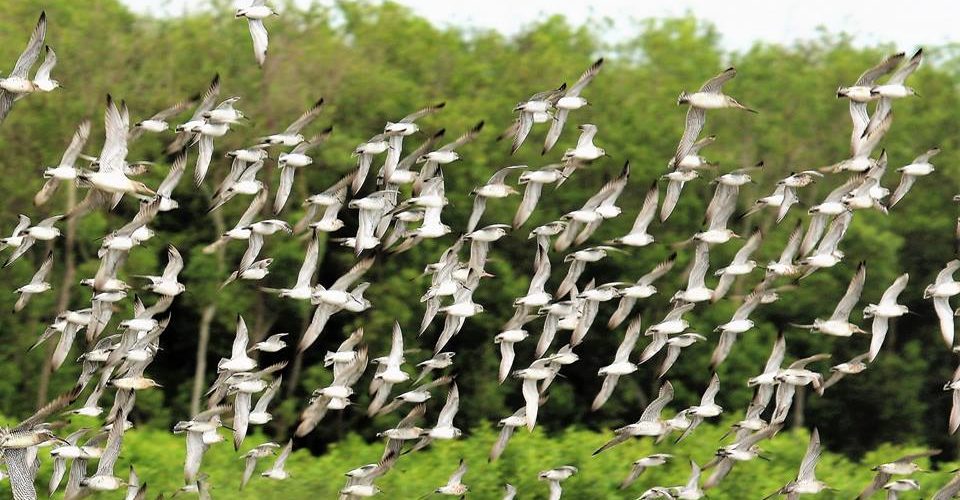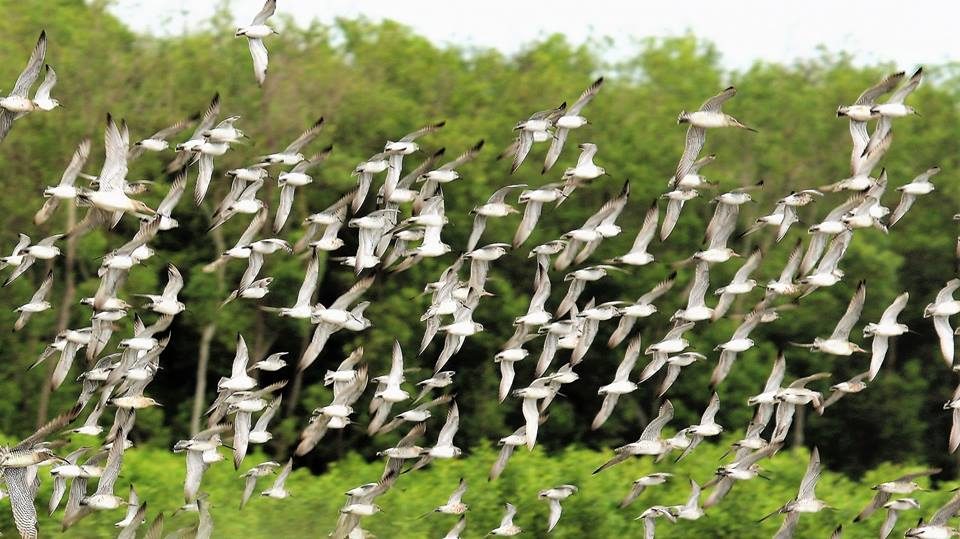Every four years, the IUCN World Conservation Congress brings together thousands of leaders and government-level decision-makers, civil society, indigenous peoples, business and academic with the goal of conserving the environment and harnessing the solutions nature offers to global challenges. This year’s IUCN Congress was hosted in Marseilles, France, from 3 to 11 September 2021, where Wetlands International collaborated with partners and co-conveners on various sessions throughout the week both online and in-person, showcasing how safeguarding and restoring wetland ecosystems offer effective nature-based solutions to build resilience.
The Congress was structured into 7 thematic areas: climate change and mitigation, freshwater, landscapes, oceans, rights and governance, innovation and technology and financial systems. Wetlands International began the week by highlighting the role of freshwater ecosystems in the Post-2020 Global Biodiversity Framework, and presented successful stories of mangrove and blue carbon restoration, as well as how wetlands have helped communities mitigate climate risks and disasters as Nature-based Solutions in Asia. Kazuaki Hoshino, Supervisory Council Member of Wetlands International stated, “We can learn a lot from on-the-ground efforts. Local community ownership as a point of view is very important; to support the leaders of local communities we should supply relevant scientific information. That is the task for Wetlands International Japan as well as the IUCN as a whole.” Wetlands International also shared successful stories of wetland restoration as part of the UN Decade on Ecosystem Restoration, reiterating why wetland restoration is vital for our common future.
The rest of the week saw examples of how mangroves help secure West African coastlines, presenting the recently launched The State of the World’s Mangroves report, how wetlands act as powerful Natural Climate Buffers, discussions around collaborative approaches to funding, and the impact of the MAVA Outcome Action Plans in the Mediterranean Basin. Wetlands International also spoke about the Conservation Status Review for the East Asian-Australasian Flyway, revealing huge data gaps and the need for more field monitoring in Yellow Sea countries.
Jane Madgwick, CEO of Wetlands International, wrote an open letter to IUCN Members. The time is now for natural sponges describes how the natural “sponge” concept, involving the restoration of absorptive capacity of soils in Europe’s upper valleys, is a landscape level nature-based solution to the catastrophic European floods in July and can help us achieve the objectives of the European Green Deal. “Wetland sponges are ‘no regret’ nature-based solutions – meaning there are no downsides. They make people and property safer and help achieve multiple policy objectives, including adapting to floods and droughts, improving water quality, storing carbon in soils and creating habitats to benefit nature,” writes Jane Madgwick.
Following the last day of the Congress, the IUCN issued a statement where Members voted in favour of a range of Motions aiming to protect Europe’s nature, with a particular focus on forests and on marine biodiversity. The following motions, all co-sponsored by Wetland International, have been approved by the Members Assembly:
Overall, the Congress had 9,200 participants, onsite and online – the hashtag #IUCNCongress reached more than half a billion people over the course of the event. Generally, the conference discussions were focused on scaling up Nature-based Solutions, cross-sectoral partnerships and the importance of working with business to promote systemic change. Special attention was given to indigenous people and youth engagement and the role they can play in transforming society and achieving the SDGs. There were various highlights of the Congress, including the election of the new IUCN President-Elect, Razan Al Mubarak. The Members Assembly adopted 28 resolutions, and many outputs related to the post-2020 framework, the climate crisis and the COVID-19 recovery packages. The French government furthermore committed to protecting land and ocean ecosystems, and the Western Indian Ocean states expressed their commitment to the Great Blue Wall Initiative.
The main outcome of the Congress, the Marseille Manifesto, can be viewed here.

